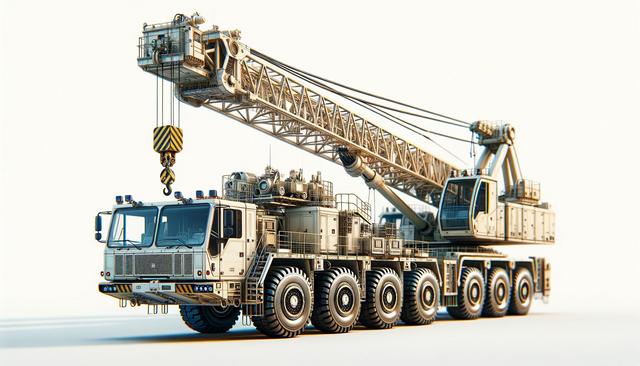What Are Crane Trucks and How Do They Work?
Crane trucks are specialized vehicles that integrate a crane component with a standard truck chassis. This unique combination allows them to transport heavy loads while also having the ability to lift, move, and place materials with precision. Commonly used in construction, logistics, and infrastructure projects, crane trucks enhance operational efficiency by reducing the need for multiple machines on-site. They come in various sizes and configurations to suit different project needs, from compact models for urban use to large-scale machines for industrial tasks.
The core of a crane truck includes a hydraulic crane mounted directly onto the truck bed or a rotating platform. The hydraulic system provides the necessary force for lifting and maneuvering loads, which can range from construction materials and machinery to containers and utility equipment. Key components include:
- Telescopic or articulated crane arms
- Hydraulic lifting mechanisms
- Stabilizing outriggers for balance
- Operator controls (manual or remote)
The integration of these features means that crane trucks can access tight spaces, lift heavy objects to elevated positions, and support fast-paced workflows.
Common Applications Across Industries
Crane trucks are found in a wide range of industries due to their adaptability and practicality. In the construction sector, they are frequently used to lift and place building materials such as steel beams, concrete panels, and roofing supplies. In logistics and transportation, they assist in loading and unloading cargo, especially in locations without fixed lifting infrastructure.
Some of the most common industries that rely on crane trucks include:
- Construction and building maintenance
- Telecommunications and utilities
- Shipping and port operations
- Forestry and agriculture
- Mining and heavy equipment relocation
Each industry benefits from the mobility and lifting capabilities of crane trucks, allowing for operational flexibility and time savings. Their ability to function in environments where fixed cranes or forklifts are not feasible makes them essential equipment in many field operations.
Key Advantages of Using Crane Trucks
One of the most valued benefits of crane trucks is their dual-purpose nature. They eliminate the need for separate transport and lifting machines, reducing both logistical complexity and operational costs. Their mobility allows them to reach remote or difficult job sites with ease, which is particularly valuable in infrastructure development and emergency repairs.
Other notable advantages include:
- Time efficiency by combining lifting and transport in one trip
- Lower labor costs with fewer machines and operators required
- Reduced site congestion compared to multiple vehicles
- Improved safety with built-in stabilizers and remote controls
Crane trucks are also adaptable to various attachments and tools, enabling them to handle different tasks without needing specialized equipment. This makes them a preferred choice for contractors, utility providers, and logistics companies looking for versatile solutions.
Safety Considerations and Operator Training
Operating crane trucks requires a strong focus on safety, as improper use can lead to serious accidents or equipment damage. Operators must be trained and certified to handle both the driving and crane operation aspects of the vehicle. Training typically includes understanding load limits, safe lifting procedures, and routine maintenance checks.
Key safety measures include:
- Using outriggers to stabilize the truck before lifting
- Inspecting hydraulic systems and cables regularly
- Following load charts and manufacturer guidelines
- Wearing appropriate protective gear during operation
Regulations may vary depending on location and intended use, so companies must ensure they comply with local laws and industry standards. Regular inspections and maintenance schedules are also crucial to keeping crane trucks in safe working condition and avoiding costly downtime.
Choosing the Right Crane Truck for Your Needs
Selecting a crane truck depends on several factors, including the weight and type of loads, the environment in which the vehicle will be used, and the frequency of operation. Buyers or renters should evaluate the lifting capacity, reach, mobility, and compatibility with job site conditions before making a decision.
Important criteria to consider when choosing crane trucks include:
- Crane type (telescopic, knuckle boom, etc.)
- Maximum lifting capacity and height
- Truck bed size and payload capacity
- Ease of maneuverability in tight or urban areas
- Availability of service and maintenance support
For companies that handle a variety of projects, opting for a flexible and multi-functional model can offer long-term value. Renting is also a viable option for short-term needs or specialized tasks, providing access to modern equipment without a large capital investment.








